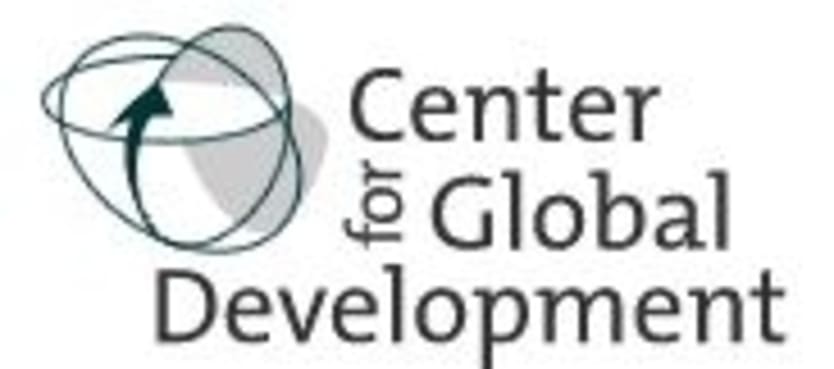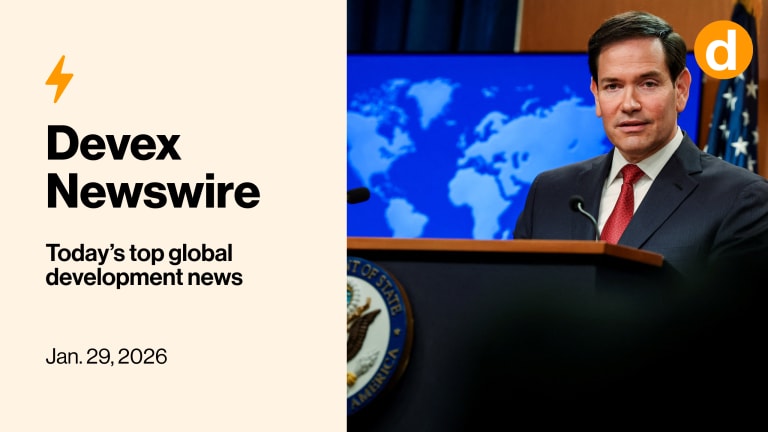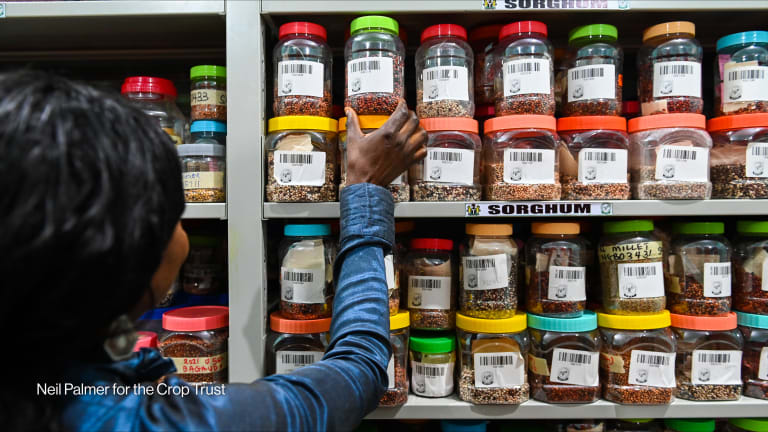
EDITOR’S NOTE: Can P.L. 480 feed the future? Connie Veillette of the Center for Global Development discusses why dropping Feed the Future from the international affairs budget is counterproductive in this article at the Rethinking U.S. Foreign Assistance Blog.
The House Budget Committee passed its budget alternative last week that calls for reduced spending for international affairs. The accompanying report gives some details on the cuts the Committee is recommending.
Many of the recommendations are ill-advised if the United States is to remain influential in world affairs, such as eliminating the Complex Crisis Fund, zeroing out funds to organizations like the African Development Fund or Inter-American Foundation, or reducing public diplomacy programs.
Perhaps the oddest and most counter-productive recommendation is to eliminate Feed the Future but continue U.S. food aid, also known as PL 480, in its stead. Feed the Future is the manifestation of the Obama administration’s emphasis on global food security begun in the last year of the Bush administration when funding for agriculture productivity activities was steeply increased. This increase in focus on food insecurity came about because of food price fluctuations in 2007 and 2008 that pushed the number of people living in poverty to above the one billion mark.
The Committee asserts that Feed the Future is no longer necessary and that PL 480, also known as Food for Peace and the McGovern-Dole school feeding program, provides all the agriculture funding that’s needed. Huh? PL480 is not a long-term program to promote food security. The majority of its funds are for humanitarian responses to acute and chronic problems with regard to food availability and access. It is a “feed the now” rather than a “feed the future” approach. Its goal is to keep people alive, not to increase farm yield or any of the related activities necessary to help develop sustainable agriculture. Instead much of PL480 funding goes to the World Food Program to provide food in emergencies around the world, or gets monetized – sold by NGOs to pay for small-scale agriculture projects.
It also boggles the mind that the Budget Committee would emphasize programs that are widely recognized as having serious efficiency problems. As John Norris and I have previously written, our food aid programs are some of the most inefficient in government. Because U.S. law requires that food be purchased in the United States and shipped on U.S.-flagged vessels, the transaction costs eat away at roughly one-third of the funding. These laws also apply to assistance that is monetized.
Feed the Future is largely funded from USAID’s Development Assistance (DA) account. The Committee recommends eliminating DA and consolidating its funding with the Millennium Challenge Corporation. Just under 29 percent of MCC expenditures have gone to agriculture activities, and initial reports are positive with regard to outcomes. But, the MCC is a specialized agency that’s focus cannot singularly be food security. This is particularly true because countries chosen for MCC compacts are the ones to design the compact’s components according to the MCC’s well-known emphasis on country ownership.
There are better ways to find savings in the international affairs account that will not undermine U.S. global leadership. To that end, John Norris at the Center for American Progress and I formed a working group to prioritize the international affairs budget amid austerity. We have identified priorities that represent sound investments on development and national interest grounds, as well as areas in which funding should be ended or curtailed. Our cost savings are significant but would not cripple U.S. global engagement. We also identify those areas that should be protected from cuts, such as operating expenses and training.
At the same time as cuts are identified, we also focus on three areas of U.S. comparative advantage – those areas in which the United States has expertise, experience, and adequate funding to really make an impact. It should not be surprising that food security, together with health and humanitarian response, are where we think the focus should be.
Republished with permission from the Center for Global Development. View original article.
Search for articles
Most Read
- 1
- 2
- 3
- 4
- 5








